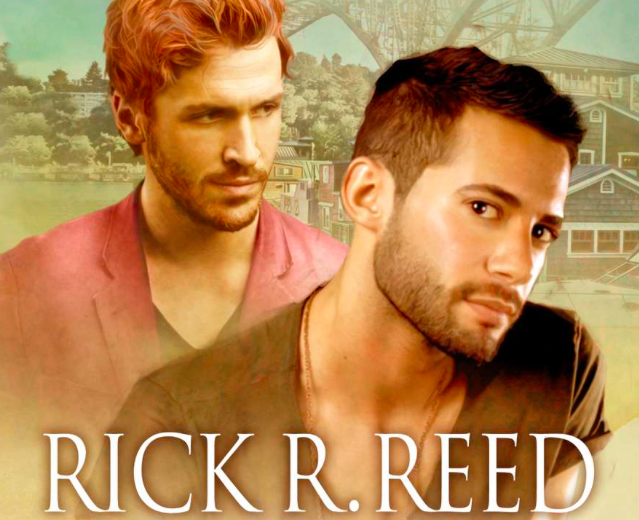I receive dozens of emails from publicists every week. I answer about one or two a month. Until recently, the last one to which I responded was from SeekingArrangement.com’s in-house publicist about how the high cost of Obamacare premiums was prompting young women to look for sugar daddies to pay their new insurance bills. The quirkier, the better–especially since I read enough news not to be surprised by ordinary pitches.
So when I received an email promoting a gay romance novel, my interest was naturally (no, not in that way) piqued. Rick R. Reed’s latest offering, Legally Wed, is about a gay man struggling to come to terms with the contradictions of homosexual romance in an era when gay marriage is suddenly becoming legal. I thought it sounded timely as well as interesting as a window onto some of the internal dialogue of the gay community.
The book arrived, and I will admit that it is not an easy read, at least for this straight man. I don’t read too much romance literature anyway, and I’m certain that plenty of straight stuff is equally awkward. Yet it is tough to get through passages such as, “I need to rub myself up against something hard, warm, and furry,” without feeling rather left behind. (Perhaps gay readers have the same trouble with straight romance novels.)
Anyway, the plot involves a gay man who is excited at the legalization of gay marriage in Washington State, but discovers that his boyfriend is not interested in tying the knot. Heartbroken, he decides that gay men simply do not want to commit, and places an ad for a straight woman who will be willing to marry him in traditional style, despite his sexuality (which he does not hide). A woman answers and agrees, and all seems to be going well.
Then–spoiler alert–our protagonist meets the (male) wedding planner, who is also gay, and whom he cannot resist. At the same time, his fiancée also meets a man to whom she is attracted–too late, of course, since she is already engaged. Try as he might, our gay hero cannot work up the desire to do more than cuddle his intended. The two of them break it off amicably, and the hero and the wedding planner soon throw a wedding of their own.
It’s treacly stuff, and the characters are rather familiar cutouts. What remains interesting about the book is its subtle message: namely, that people cannot deny their true desires, try as they might. I suppose that is an old theme in novels: Tolstoy’s Anna Karenina is all about people following their passions to ruin. But in Reed’s gay romance, the context of the political debate over gay marriage makes the theme worth considering anew.
To his credit, Reed does not confront the reader with partisan stuff. That’s refreshing, especially in an age where Hollywood-backed conformity prevents any real and honest discussion of the issues gay marriage raises. On the other hand, unlike Tolstoy’s characters (tough comparison, I know), Reed’s do not face any real negative consequences for their decisions. Their choices are not really tragic. Maybe that was the intention.
I don’t know enough about the world of gay literature to know whether these themes are explored in greater depth by other authors. When I think about why I don’t know enough, I come up with a few reasons: my own philistinism about literature; the off-putting politics of the literary academy, more concerned about tearing down convention than enjoying good writing, etc. Reed’s novel didn’t change that, but I appreciated the effort.

COMMENTS
Please let us know if you're having issues with commenting.